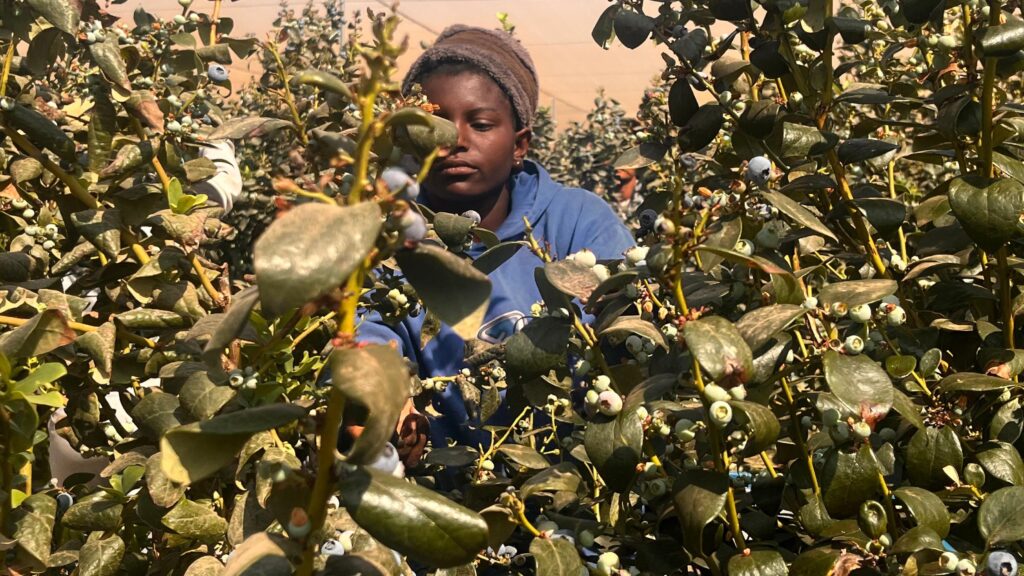Zimbabwe, Africa’s leading tobacco producer, is setting its sights on a new and healthier future by turning to blueberries, a crop increasingly regarded as one of the world’s top superfoods. Farmers and industry leaders believe the southern African nation could become Africa’s blueberry capital, thanks to a groundbreaking trade agreement that allows tariff-free exports of the fruit to China, the world’s largest importer of blueberries.
Tobacco continues to dominate Zimbabwe’s agricultural sector, with record sales of $1.3 billion in 2024 driven largely by demand from China. But while blueberry exports remain comparatively modest at $30 million, the industry is showing strong signs of growth and long-term sustainability. Horticulture experts argue that food production, not tobacco, will secure Zimbabwe’s future. “The future is food, not a bad habit,” says horticulture specialist Clarence Mwale, who is encouraging small- and medium-scale farmers to diversify into blueberry farming.

For the first time, China has agreed to import Zimbabwean blueberries tariff-free, giving local farmers unprecedented access to a vast new market. Currently, Zimbabwe exports blueberries to Europe, the Middle East, and South East Asia, but China’s entry changes the game. The new deal could position Zimbabwe ahead of regional rivals such as South Africa, which has yet to secure Chinese approval for blueberry exports, and Morocco, Africa’s largest producer with more than 80,000 tonnes in 2024. Zimbabwean production is expected to rise by 50% this year to 12,000 tonnes, and farmers are targeting 30,000 tonnes by 2030.
Among those leading the shift is Alistair Campbell, former Zimbabwe cricket captain turned commercial farmer, who co-owns a 50-hectare high-tech blueberry farm near Harare. His operation grows 240,000 plants in imported pots with precision irrigation and cold storage systems designed to maintain freshness for export. Campbell says global demand, particularly from Asia, makes blueberries a high-value crop worth the investment. Zimbabwe’s seasonal advantage also works in its favor, with harvests beginning as early as March—well ahead of competitors like Peru, now the world’s largest exporter after rapid growth over the past decade.
Beyond economic potential, the blueberry sector is also creating jobs in a country where unemployment remains high. The industry already employs around 6,000 workers, most of them women. “It’s delicate hands that are needed for a delicate fruit,” says supervisor Rebecca Bonzo, explaining how blueberry farms provide a vital source of income for female breadwinners during peak harvesting season.
While optimism is high, challenges remain. Investors are still cautious due to Zimbabwe’s history of land reform and ongoing foreign currency restrictions, which require exporters to surrender part of their earnings to the central bank. Campbell warns that for Zimbabwe to truly capitalize on the China deal, “the underlying fundamentals need to be correct.”
Still, with strong government backing, industry partnerships, and a clear global market opportunity, Zimbabwe’s farmers are confident that blueberries could reshape the country’s agricultural future. By shifting from tobacco a crop that feeds unhealthy habits to blueberries, which are praised worldwide for their vitamins and antioxidants, Zimbabwe is not only redefining its export strategy but also working to claim the title of Africa’s leading blueberry producer.














Leave a comment